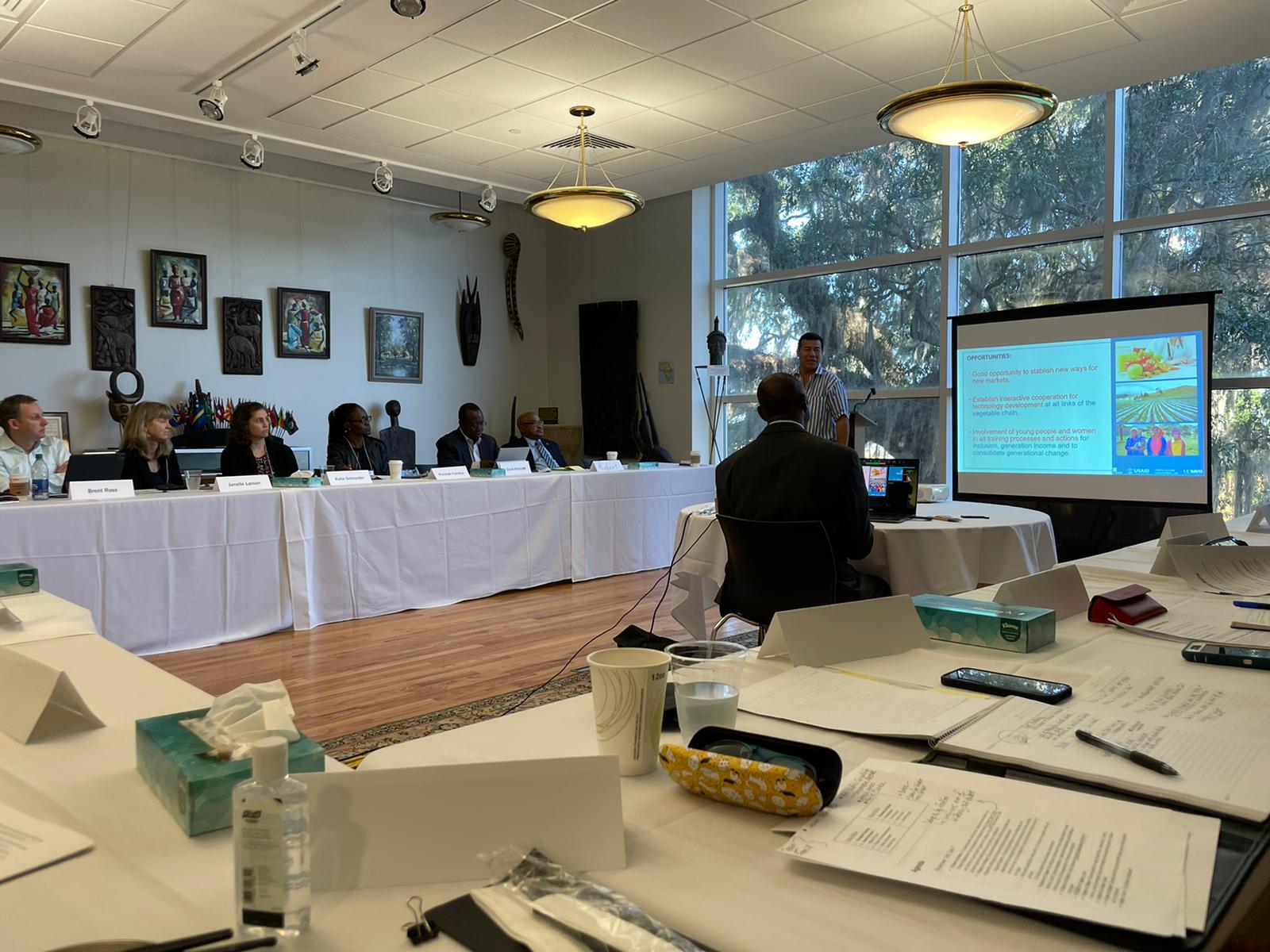Last week marked an important step for Feed the Future Innovation Lab for Horticulture’s five-year program lifecycle.
Members of the management entity (ME), Consortium, and regional leaders (coming from Kenya, Ghana, Honduras, and Nepal), met at Florida A&M University (FAMU) in Tallahassee to analyze the results of the four regional horticulture workshops held this past summer (see previous blogs for more info on each one). Over 2 days, the 20 meeting attendees were able to successfully narrow down research priorities to one per region that will drive project implementation in the coming years.
The prioritization process: Multi-step and local-led
So many important horticultural challenges and opportunities were showcased at each regional workshop–how could they be narrowed down to just one priority? To start, regional leaders–teams of two per region presented to the Consortium the top three priorities that materialized out of their respective workshops. They also identified a regional archetype, which is the embodiment of the person they most want to benefit with their research. Then, regional leaders led breakout sessions with members of the ME and Consortium to discuss which priority will most pointedly meet the needs of the chosen archetype. Based on those discussions, one priority per region was chosen.
The second and final day was about choosing sub-themes to accompany each regional priority. Attendees again split up into groups to discuss which sub-themes will most a appropriately address the main research priority. Participants were also encouraged to consider cross-cutting themes including gender, nutrition, and youth when choosing priorities. By the end of the day, sub-themes were selected for each research priority and region.

Regional example: West Africa
But how does the prioritization process translate to real-world contexts? To demystify this exercise, one can look at how it played out for West Africa. Regional leaders first identified three major priorities: 1) Health and nutrition, 2) Youth and gender, and 3) Postharvest Technology and Food Safety. They also identified their archetype–a 30-year old mother of three with limited access to financial resources but with dreams of expanding her agricultural ventures. Then, through breakout discussion, group members determined health and nutrition to be the top priority for West Africa. The sub-themes selected to accompany this priority were: 1) school gardening to introduce youth to concepts of nutrition, indigenous vegetables, and agribusiness, 2) research on indigenous vegetables to understand their potential market value (as both fresh and processed products), and 3) understanding access to healthy diets to identify the barriers impeding people from eating nutritious foods.
What now? Local leadership driving next steps
Requests for applications (RFAs) will be directly aligned with regional sub-themes, and so will resulting proposals submitted to the Horticulture Innovation Lab by regional organizations. These proposals will then be evaluated by regional experts and members of the ME and Consortium to determine which ones to fund. It is important to note that last week was really just the culmination of months and even years of research by in-country leads to understand the horticulture sector in their regions. This approach also turns the traditional globally-led, locally-supported approach on its head–local organizations are the ones leading prioritization, research, implementation, and monitoring and evaluation, with ME and Consortium members providing financial and technical support. This local leadership would not be possible without the dedication and hard work of regional hub managers Dr. Peninah Yumbya of International Centre for Economic Development (ICED) in Kenya, Dr. Naalamle Amissah of University of Ghana, Dr. Julio Lopez of Zamorano University, and Krishna Sapkota of Forum for Rural Welfare and Agricultural Reform for Development (FORWARD) Nepal.
Special thanks to our Consortium partners at FAMU, especially Professor Harriet Paul and her team, for hosting and facilitating this meeting. We are grateful to have such a talented, dedicated group of people from around the world be able to come together and work towards common goals of food security, health, and environmental and human well-being.
